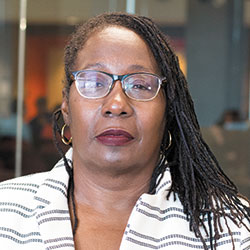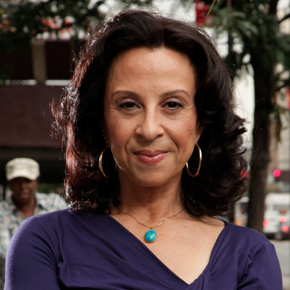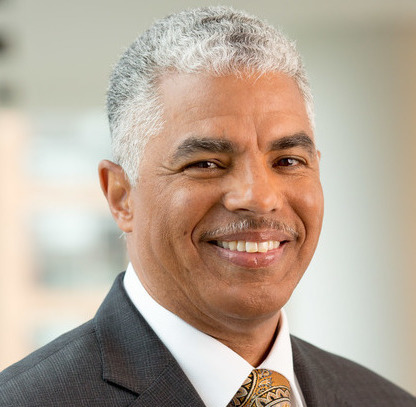Newsroom co-workers and society alike benefit when journalists have different perspectives and backgrounds, because they reflect diversity, equity and inclusion.
These differing perspectives could be influenced by skin color, gender or sexual orientation and should be considered assets. They not only represent a shifting America in terms of demographics, but they bring cultural competence to their organizations, according to two nationally renowned journalists.
“What we’re really talking about is dismantling white supremacy,” said Maria Hinojosa, president and founder of Futuro Media and anchor and executive producer of NPR’s Latino USA. “What we’re really talking about is white men understanding they do not have an ownership on so-called objectivity or fairness. … They have one way of seeing the world.”
Hinojosa’s comment was made at “Reporting on Diverse Communities,” a Sept. 14 panel discussion that continues the fall 2020 “Must See Mondays” lecture series at the Walter Cronkite School of Journalism and Mass Communication on Arizona State University’s Downtown Phoenix campus.
Venita Hawthorne James
Moderated by Cronkite Professor of Practice Venita Hawthorne James, the other panelist for the Zoom livestream event was Keith Woods, chief diversity officer for NPR. James said she moderated the event because diverse communities deserve to be visible, valued and understood, and their stories are worthwhile.
“That’s one reason journalists of color, transgender journalists, journalists from multiple generations and from a spectrum of political and religious perspectives — and their allies — are foundational to news, sports and marketing,” said James, who has three decades of journalism experience. “Inclusive coverage also serves a higher purpose, because it connects all communities, in all their diverse splendor, to the fullness of humanity.”
The wide-ranging, hourlong discussion covered a variety of topics that included storytelling, identity, race, ethnicity, social media, allyships and societal shifts in the newsroom.
“We don’t want to take the marathon approach to work. We want change yesterday,” said Woods, who has been a journalist for more than four decades. “The moment is now. … I’m optimistic because I think that the impatience of the people who will have their way is driving this moment for us. We’re having this conversation — as many years as we’ve been having them — because people have not felt the urgency to change. And I think that’s shifting.”
Those shifts have not only taken time, but were often painful to newsroom pioneers, said Hinojosa. She said she suffered from “imposter syndrome,” which she writes about in her new book, “Once I Was You: A Memoir of Love and Hate in a Torn America.”
“I didn’t focus so much that I was the first (Latina) in the newsroom because I had a job to do. I was trying not to be overwhelmed by the imposter syndrome,” Hinojosa said. “I was busy, really trying to quiet that voice — I was like, ‘What am I doing in this editorial meeting? Nobody’s going to understand what I’m about to say.' And I would force my hand to go up. I would literally push it up, hold it up, because I had a responsibility. I think it was that immigrant responsibility. Like, you’re there, you better speak up because your parents didn’t, and you didn’t come all this way to this country to be in a newsroom and not say anything.”
Maria Hinojosa
Coming from a different background means there are certain biases that a reporter brings to the newsroom, but Woods said practicing sound journalism can help overcome this.
“If we can reject the idea that there is any such thing as human impartiality, then we can get closer to fair, as long as those two notions exist,” Woods said. “The idea is that you want fair and complete, contextually accurate journalism, and you get those things by the exercising of hard questions.”
Ridding biases also includes taking other precautions as a reporter, Hinojosa said.
“You will not see me making any political contribution. You will not see me signing any petition letter,” Hinojosa said. “You will not see me participating in a protest, because I’m covering it and making it clear that I’m a journalist.”
Diversity in newsrooms often means building allyship with others from different backgrounds and learning together what’s acceptable and what’s not.
“Although my newsroom is diverse and includes white men and women, we don’t use the word ‘minority’ (or) the word ‘illegal,’” said Hinojosa, whose Futuro Media is a Harlem, New York-based nonprofit that creates multimedia content for the new America mainstream. “In my newsroom, we can make certain decisions about how we approach certain things. … It’s really hard when you become an employer because you suddenly have to have these conversations.”
Keith Woods
Woods said he, too, is interested in building allyship, but others should note he’ll be holding them accountable.
“Allyship requires that I both meet you where you are, or you meet me where you are. But accept that I’m going to have a hand on your back pushing that we are not staying where you are,” Wood said. “An allyship cannot succeed if all you’re saying to me is, ‘This is who I am and you have to accept me.’ That’s no great value to me in an allyship. You’ve got to demonstrate you are ready to get on the starting blocks and run that sprint with me.”
More Law, journalism and politics
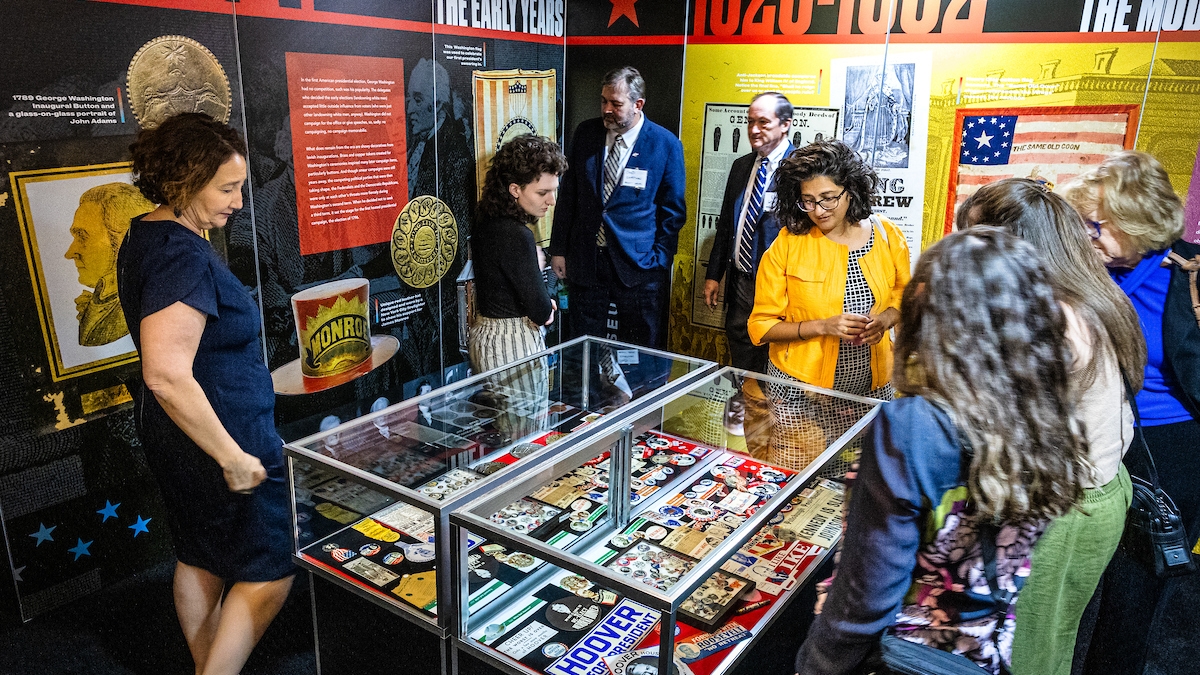
Exhibit uses rare memorabilia to illustrate evolution of US presidential campaigns
After one of the most contentious elections in history, a new museum exhibit offers a historical perspective on the centuries-old American process.“We The People! Electing the American President” had…
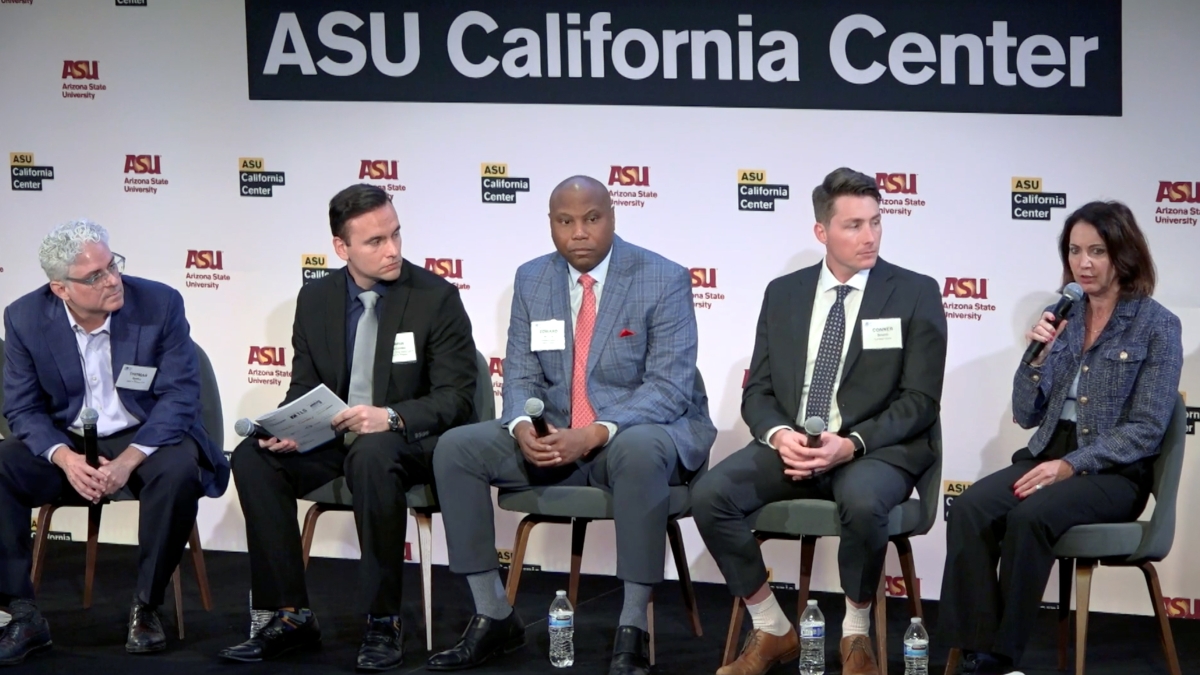
TechTainment conference explores the crossroads of law, technology, entertainment
What protections do writers, actors, producers and others have from AI? Will changing laws around name, image and likeness (NIL) eliminate less lucrative college sports programs?And what does…

How to watch an election
Every election night, adrenaline pumps through newsrooms across the country as journalists take the pulse of democracy. We gathered three veteran reporters — each of them faculty at the Walter…

